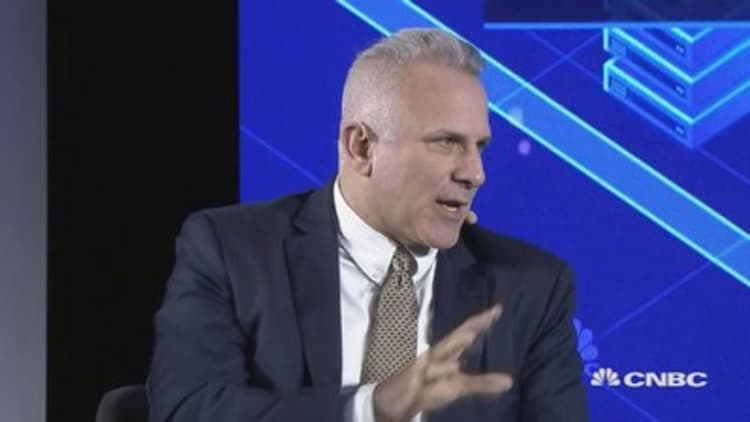
Facial recognition technology has been the subject of much controversy due to concerns over public surveillance.
With that in mind, an executive at one leading Chinese firm deploying the technology says that getting it right will be something of a balancing act, with considerations around data privacy on the one hand and public security issues on the other.
"Privacy is one of the major, very sensitive issues nowadays given that the data is increasing very rapidly," Candy Wu, vice president of Guangzhou, China-based CloudWalk, said during a panel at CNBC's East Tech West event.
According to a report from the South China Morning Post, CloudWalk's technology has been used to help Chinese police arrest more than 10,000 criminals over the past four years. The firm also works with banks, which use its facial identification software at ATMs.
Facial recognition companies have been at the heart of a contentious debate over how the technology is deployed in China to monitor citizens. Chinese tech companies including Huawei, Hikvision, Dahua and ZTE supply artificial intelligence-powered surveillance technology for a number of so-called "smart city" projects.
The U.S. last month added several AI firms involved in the development of face recognition to a trade blacklist, amid fears such companies were involved in China's internment and surveillance of Muslim minority groups. CloudWalk was not among the firms included on the list.
Wu said that Chinese authorities find the public security component of facial recognition "more important" than privacy, while regulators in Europe and the U.S. want to ensure consumers' privacy rights are respected.
"We don't have a perfect solution nowadays … I think it's a kind of balance," she said, adding that both companies and governments would need to weigh up the data protection and public safety issues involved.
Bryan Bachner, investment director of the new economy fund at China Everbright Limited, said smart technologies like AI and biometric identification represent an "opportunity" for investors as China moves from an "export-led" to "consumer-led" economy.

"In terms of our investment, in terms of our entrepreneurial ability, we're definitely focused on this shift in the Chinese economy towards more consumer-oriented investment," said Bachner.
China Everbright is an investor in SenseTime, which is one of the firms that was added by Washington to the federal trade blacklist. SenseTime has said it's "deeply disappointed" in the U.S. decision and abides by "all relevant laws and regulations of the jurisdictions in which we operate."





